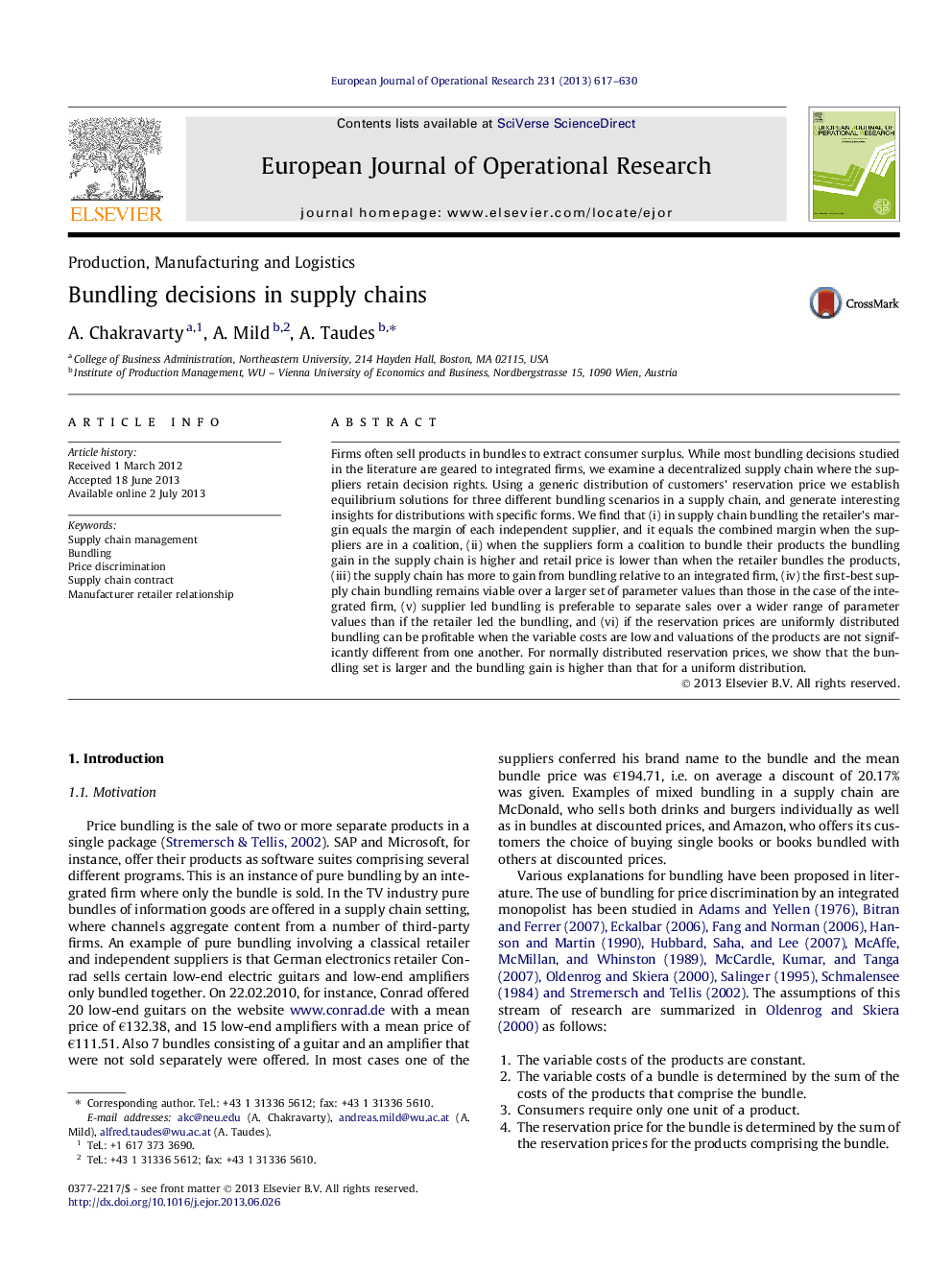| Article ID | Journal | Published Year | Pages | File Type |
|---|---|---|---|---|
| 6897760 | European Journal of Operational Research | 2013 | 14 Pages |
Abstract
Firms often sell products in bundles to extract consumer surplus. While most bundling decisions studied in the literature are geared to integrated firms, we examine a decentralized supply chain where the suppliers retain decision rights. Using a generic distribution of customers' reservation price we establish equilibrium solutions for three different bundling scenarios in a supply chain, and generate interesting insights for distributions with specific forms. We find that (i) in supply chain bundling the retailer's margin equals the margin of each independent supplier, and it equals the combined margin when the suppliers are in a coalition, (ii) when the suppliers form a coalition to bundle their products the bundling gain in the supply chain is higher and retail price is lower than when the retailer bundles the products, (iii) the supply chain has more to gain from bundling relative to an integrated firm, (iv) the first-best supply chain bundling remains viable over a larger set of parameter values than those in the case of the integrated firm, (v) supplier led bundling is preferable to separate sales over a wider range of parameter values than if the retailer led the bundling, and (vi) if the reservation prices are uniformly distributed bundling can be profitable when the variable costs are low and valuations of the products are not significantly different from one another. For normally distributed reservation prices, we show that the bundling set is larger and the bundling gain is higher than that for a uniform distribution.
Related Topics
Physical Sciences and Engineering
Computer Science
Computer Science (General)
Authors
A. Chakravarty, A. Mild, A. Taudes,
